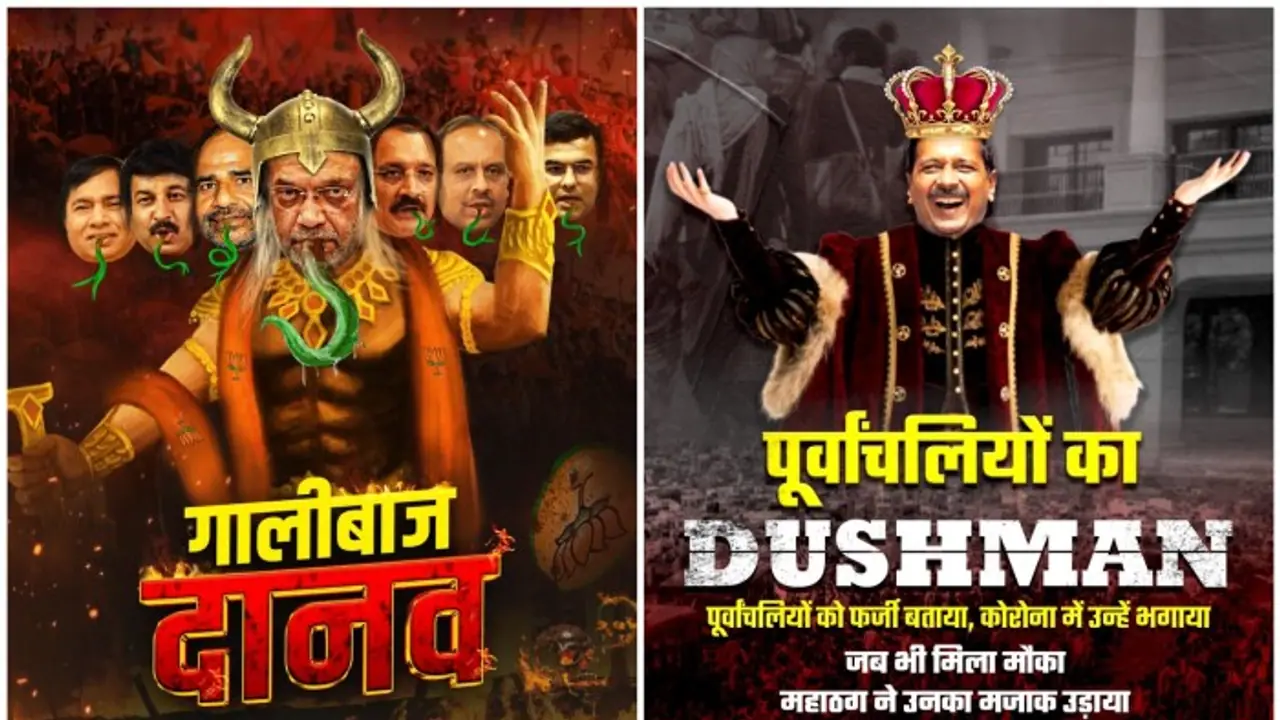As electoral battle heats up in the run upto Delhi Assembly elections, the Aam Aadmi Party (AAP) and Bharatiya Janata Party (BJP) have engaged in a fiery battle of words, fueled by provocative poster campaigns.
As electoral battle heats up in the run upto Delhi Assembly elections, the Aam Aadmi Party (AAP) and Bharatiya Janata Party (BJP) have engaged in a fiery battle of words, fueled by provocative poster campaigns. The two parties have exchanged sharp jabs, turning public platforms into a battleground of accusations and counterclaims.

AAP ignited the clash with its latest poster campaign, questioning the BJP’s failure to announce a chief ministerial candidate. Accompanied by the caption “Delhi ka CM Kaun?”, the poster hailed Arvind Kejriwal as the undisputed face of the “Aam Aadmi Party,” while dubbing the BJP the “Gaali Galoch Party.”
The poster alleged that BJP leaders, including Amit Shah, JP Nadda, Ramesh Bidhuri, Virendra Sachdeva, and Manoj Tiwari, have repeatedly made derogatory remarks. From accusations of disrespecting Baba Saheb to alleged obscene comments about women, AAP's campaign painted a stark picture of the BJP's rhetoric.
Ratcheting up the heat, AAP released another poster titled “BJP ke Gaalibaz Daanavon Se Delhi Rahe Satark,” featuring images of senior BJP leaders like Amit Shah, Manoj Tiwari, Ramesh Bidhuri, Virendra Sachdeva, and Pravesh Verma. The poster warned Delhiites to remain vigilant against the alleged “verbal onslaught” by BJP leaders.
The BJP swiftly retaliated on the social media platform X (formerly Twitter) and accused Kejriwal of being antagonistic towards the Purvanchal community. The poster, captioned “Purvanchal Samaj ka Apmaan, Sheeshmahal ke Nawab Kejriwal ki Pehchaan!,” claimed Kejriwal insulted the Purvanchalis, abandoned them during the Covid-19 pandemic, and mocked them on various occasions.
This escalating war of words comes as the Delhi Assembly elections draw near, with voting scheduled for February 5 and results set to be declared on February 8.
Key deadlines include January 17 for filing nominations, January 18 for scrutiny, and January 20 as the last date for withdrawing candidatures.
